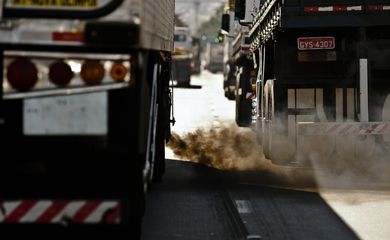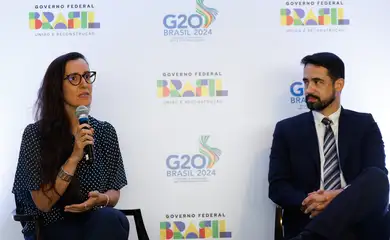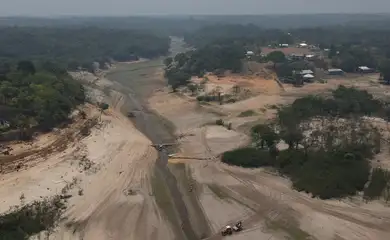“We’re heading toward planetary suicide,” says climatologist

Climatologist Carlos Nobre, a world reference on the subject, considers the proposals presented so far by countries at the 29th Conference of the Parties to the United Nations Framework Convention on Climate Change (COP29), which is being held in Baku, Azerbaijan, to be insufficient.

The climate expert highlighted that the signatories of the Paris Agreement have made little progress toward the goal of cutting global greenhouse gas emissions by 43 percent by COP28. Even if they achieve it, he argues, it would no longer be enough to limit the global temperature rise to 1.5°C above pre-industrial levels. “The planet's temperature has already been 1.5°C higher for 16 consecutive months. There's a significant risk that it won’t drop any further. If this level holds for another three years, the chances of reversing the trend become even slimmer,” Nobre warned.
Achieving the 43 percent reduction target is already a daunting challenge for a world still experiencing rising greenhouse gas emissions and heavy reliance on fossil fuels, the primary culprits, explains the scientist. “If we continue on this path, even if we cut emissions by 43 percent by 2030 and reach net-zero emissions, we’ll still likely see a global temperature rise of 2.5°C by 2050,” he warns.
Most leaders who are signatories to the United Nations Framework Convention on Climate Change are failing to act with the necessary urgency. With only a few months left before the February 2025 deadline to update their targets, only a few countries have raised their climate ambitions.
Brazil, set to host the next climate conference in 2025, is among the few countries that have updated their Nationally Determined Contribution (NDC). The country has lowered its greenhouse gas emissions target for the next 11 years. The updated figures were unveiled on Friday (Nov. 8), just ahead of the negotiations in Baku, where Vice President Geraldo Alckmin will present Brazil's proposal.
“This COP29 has to be challenging. It can't be the same as COP28. It has to really start debating the risk of our planet reaching 2.5 degrees by 2050. We're heading for planetary suicide if we don't speed up the reduction of emissions,” the climatologist stresses.
In addition to gradually addressing these issues, the climatologist emphasizes the need for countries to prepare for what may never return. “Extreme events have surged globally, and even developed nations are facing severe consequences. Just look at the increasingly powerful hurricanes impacting the United States and Mexico. Hurricane Helm, preceding Milton, claimed over 200 lives in the US. And the event in Valencia, Spain, wasn’t a hurricane—it was an extreme rainfall event, with nearly 500 millimeters of rain in just six hours, resulting in hundreds of fatalities,” explains Nobre.
Conscious consumption
For Carlos Nobre, the adaptation of poorer countries, which are therefore more vulnerable, is an issue that cannot be left out of the global negotiations of leaders.
Although public policies and the high level of funding for actions are initiatives within the reach of global decisions, the climatologist points out that everyone can contribute, since technological advances have made conscious consumption increasingly feasible. “There are now meat markets offering products from sustainable farming, with much lower emissions. The price of this meat is the same because regenerative farming is more profitable and productive, leading to no price variation,” he explains.
In addition to meat, solar energy has proven to be more cost-effective than thermoelectric power, and electric cars are also more economical when factoring in the cost of fossil fuels, explains Nobre. “We must take the lead, because in democratic and free societies like ours, purchasing an electric car makes perfect economic sense. Similarly, buying meat from sustainable, low-emission farming makes sense, and the price is the same,” he concludes.
*The reporter traveled by invitation of the Inter-American Institute for Cooperation on Agriculture (IICA).







